In the evening of May 19, 2018, during the Sunday All-Night Vigil, four militants attacked the Church of the Archangel Michael in Grozny. The bandits killed two officers of the Ministry of Internal Affairs who were guarding the church, and then tried to break into the church.
A large number of casualties were avoided because the parishioners managed to close the doors of the church. The attackers were armed with guns and knives. One parishioner was killed and another wounded as a result of the shooting.
Special correspondent for the site Rublev.com Alexander Yegortsev flew to Grozny on the morning of May 20, where he visited the Archangel Michael Church and met with Fr. Sergei Abasov, the priest serving there, and also took an interview with Archbishop Varlaam of Makhachkala and Grozny.
—Vladyka, tell us please, how and when you did you learn that the Church of the Archangel Michael in Grozny had been attacked?
—I was in the Republic of Ingushetia Saturday night, in our New Sinai-Holy Protection Monastery, serving the All-Night Vigil. They came up and told me during the service that a shootout was going on in Grozny. Of course, immediately after the Polyeleos, I called the dean of the Grozny Deanery, Fr. Sergei, at the Church of the Archangel Michael. He told me there had been four attackers, two police officers guarding the church were killed, one parishioner was killed, and one who was holding the door so the militants couldn’t break into the church was wounded. He saved people.
—It was a repeat of the scene in Kizlyar: Again the priests reacted miraculously, and the parishioners blocked the doors. If they hadn't managed to react and close the doors, what could have happened? What was the bandits’ goal?
—Their goal was clear—both in Kizlyar and here. It was an execution, a mass killing of Christians in church. They all wanted to get into the church, but you correctly noted that they didn’t manage to, neither in Kizlyar nor here. I think it’s not without reason that the Lord is showing us that salvation is in the Church. We Orthodox have to be attentive to this: Are we in the Church or outside of it?
—Muscovites can’t completely understand how good they have it—when they can go to church and stand at the services without fearing for their children.
—On the one hand, it would be good if human blood was never spilled and there wouldn’t be such atrocities, which can’t even be called the works of human hands. But, you know, St. John Chrysostom says that for the Church, the worst persecution is the absence of persecution. When nothing like that is happening in our lives, we relax and we think that everything is as it should be: Everything is calm, and there are no problems. But we always have internal problems, and I think that it’s through such external factors that the Lord forces us, Orthodox, and not just Orthodox, to reflect: What is my faith like? Why are such people suddenly appearing in our society who kill other believers and think they are serving God? These militants came for death; they weren’t going to leave. They came in order to die. Young people, eighteen or nineteen years old, came to die, and to kill others, thinking that through death they would obtain for themselves eternal blessedness, the Kingdom of God. It’s pure stupidity; it’s ignorance!
We lose people because of the lack of a true spiritual upbringing. A man without a correct spiritual basis is easily deluded. It’s easy for him to believe that he will go kill someone and then inherit the Kingdom of Heaven.
—We Muscovites cannot understand how priests and their families and parishioners in Chechnya, Dagestan, and Ingushetia, who go to church every Saturday and Sunday, live. We take the Sunday services as a binding sacred ritual: We have to go to church, stand through the service, see our friends, pray, and leave. Do people here understand that there is an element of confession in their lives?
—Of course they understand. These atrocities, which happened in Kizlyar first, and here yesterday, in Grozny, testify to themselves: Every priest, every Orthodox person going to church understands that he could be killed. But he goes to church, not somewhere else. This is already to some extent a confession. Who is a martyr or confessor? It is he who doesn’t fear dying for his faith, who is ready to give up his life. Maybe people are not so ready to part with it, but they understand perfectly well what could happen. And yet, they still go to church. And still, they pray. How could a believer not go to church? If he is a believer, he cannot not go to church, even if they’ll kill him for it.
Therefore, I believe that here in the Caucasus, under these circumstances, unfortunately, the words of Christ are being fulfilled, when He said, “Killing you, they will think they are doing God a service” (cf. Jn. 16:2). Such moments really happen. They come and just kill parishioners, and they think they are serving God. This is the danger. You have to understand that although the Caucasus has experienced some very difficult times, events are now developing such that they seem to be invisible: Everyone is trying to hide—they say it’s an isolated case, but it’s not isolated; and we don’t know where it might repeat. But parishioners have to understand that they could be killed. I believe that to live in the Caucasus today and to confess the Orthodox faith means to bear the podvig of a confessor, and sometimes of a martyr.
—After all, priests are truly open. They’re not protected by armored cars; they have no guards in their daily lives. They and their families—they’re all in plain view, and they understand.
—Yes, they are in plain view.
—But weren’t the people afraid after the Kizlyar shooting? Didn’t the number of parishioners drop?
—No, I didn’t see any particular fear. On the contrary, it united the people. When we served the funeral, a great many people came. Many are coming to church now. I want to say that this public evil has unified the Church both from within—the parishioners themselves, and in general—for the residents of Dagestan, those who are truly believers, faith is not an empty word. It seems to me that even Muslims reassessed their values and understood that preserving peace is the most important thing.
—After Kizlyar, wasn’t there a feeling that the central media had simply not taken notice of that tragedy—that it had bypassed it? Many recalled the hype associated with “Charlie Hebdo:” The whole of Europe and the European leaders were united and marched together under the slogan “Je suis Charlie.” Why didn’t we have a “Je suis Kizlyar?”
—This is a very sorrowful point. I want to say that many public organizations, officials, and muftis expressed their condolences and provided great assistance both to the relatives of those who perished and to those who were injured. But we expected a different, mass awareness from society: If we don’t respond to such events with a united front—the whole country—Orthodox and Muslims—then we will collapse. What happens: Some people break into a church with the words “Glory to the Most High,” and they kill other people, believers. What could be worse than when you kill your brothers with the name of God on your lips? It boggles the mind. I believe that both Muslims and Orthodox, in all regions of the country, should come together and hold meetings so that such things wouldn’t happen again; so that the youth—like these four who killed people yesterday—would understand where they are going; that such actions are not approved by society, that they are not approved by spiritual leaders; that they would see that they will never be heroes; that Muslims themselves would say that those who commit these acts are not people of faith; that they would have no delusions.
—What would you wish for the parishioners of the Archangel Michael Church in Grozny? There are many elderly people there who had already lived through a lot, and young families with your children. How should they live now?
—The parishioners are again experiencing great sorrow. Fr. Sergei, a young man, with his matushka and children have already felt what real death is. All the parishioners felt that death was “at the door.” I would like to strengthen all; I want to wish that they would not despair, because we are given not only to believe in Christ, but also to suffer for Christ. Suffering for Christ is part of our faith. Every believer should be ready to die for his faith, for the truth of God. Death is not terrible in and of itself. What’s important is with what kind of soul you depart. If you show weakness and a lack of faith and renounce your faith, with what kind of soul you will live? That is fearful. Therefore, I wish faith for all—strong faith in Christ.

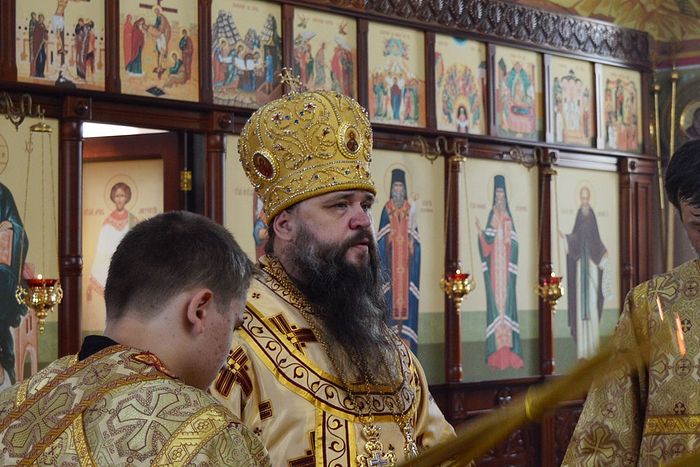
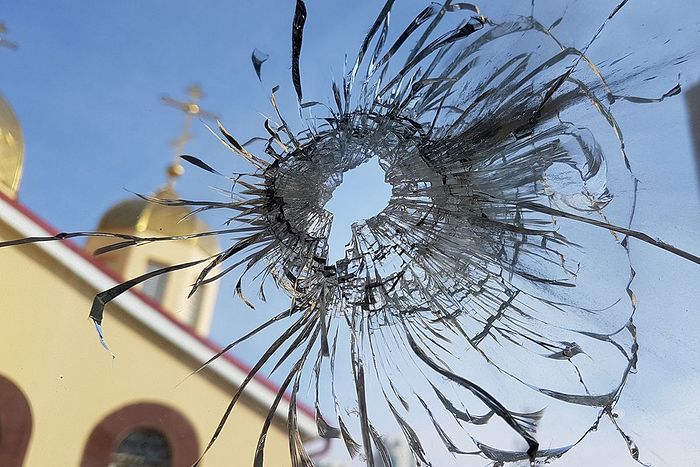
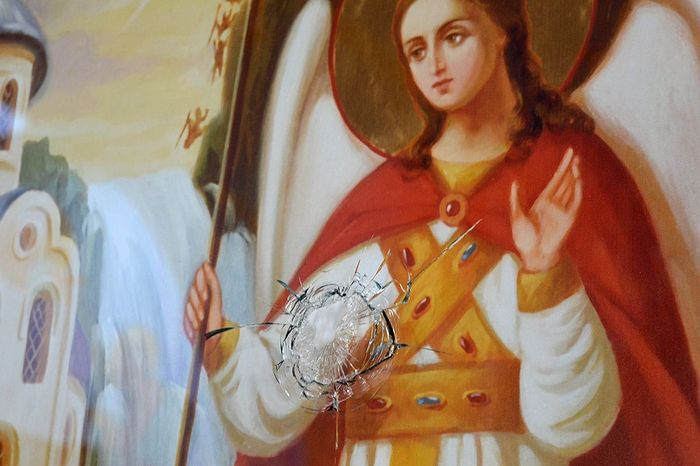
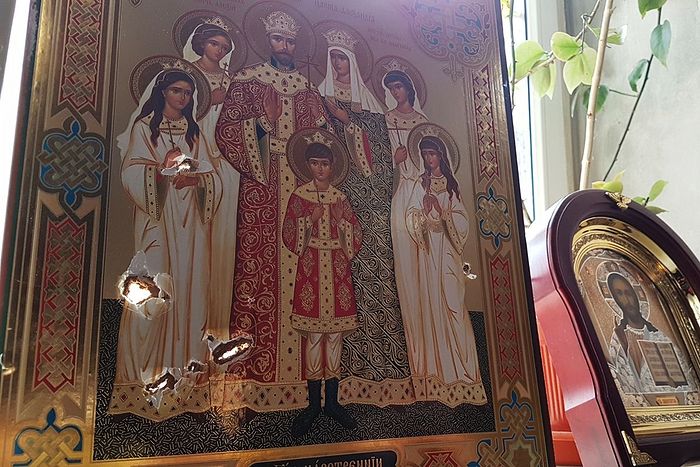
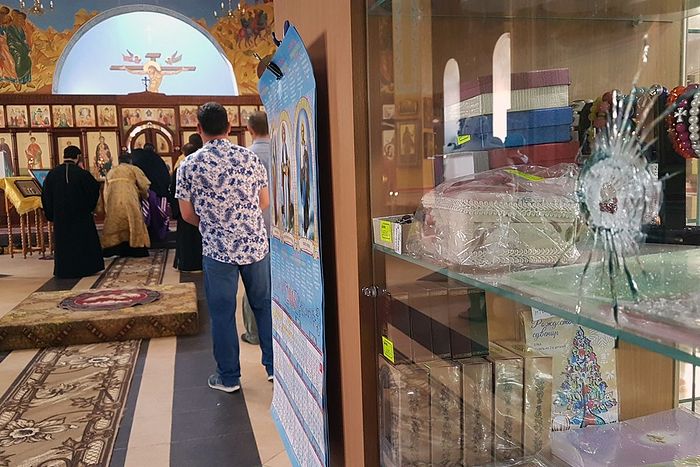
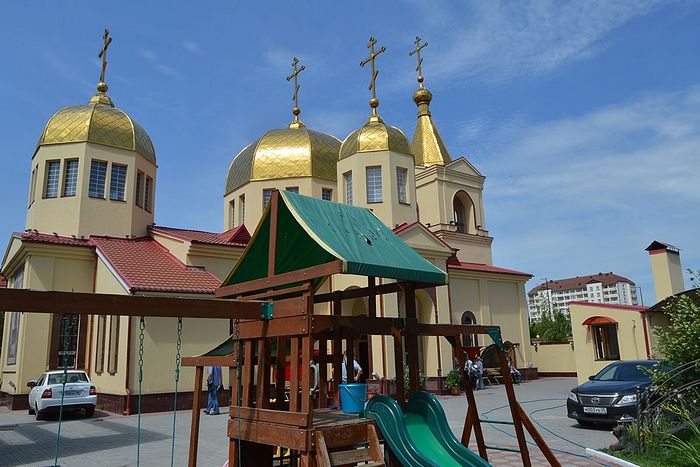
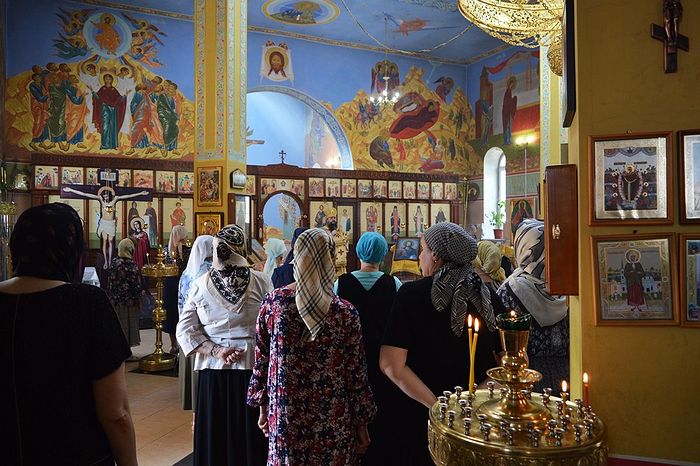
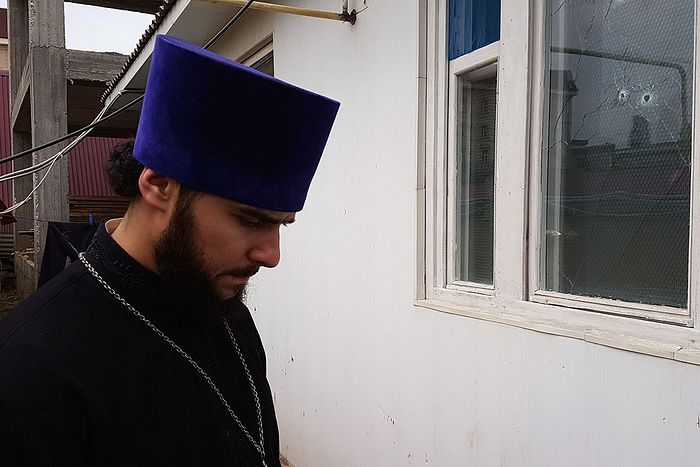
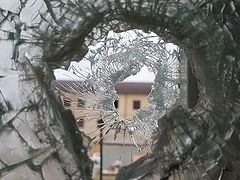
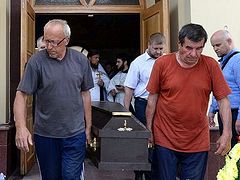
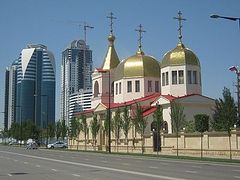
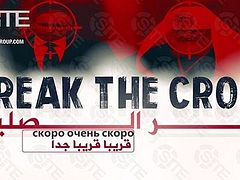
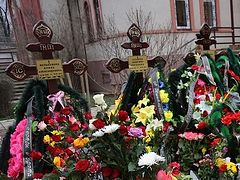
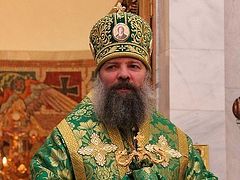
Lord God our Savior, give us more faith.